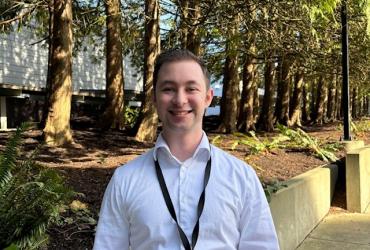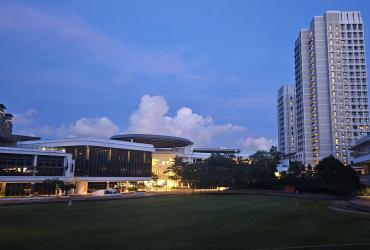Orientation and First Weeks
Before the first week of class, you will be invited to attend an orientation on campus. My orientation was conducted in English and Korean. This orientation will provide you with basic knowledge including important locations and contacts. For the first two to three weeks, students are still deciding on their schedule. Therefore, the course load was not too heavy.
Accommodation and Living
Dorm Application/Finding a Residence
Dorm applications are complicated and very demanding. For instance, the host institution may ask for a criminal record check, medical checks, and other various documents to support your credibility. This process can take a while, especially if there are any delays with obtaining your documents. Therefore, I would suggest starting the dorm applications early on. You will also get an option to apply to different buildings (e.g., global building) and room sizes (2 or 3 people). I highly recommend that you select the “any” option, because the dorm applications are very competitive, and this will give you a better chance of getting admitted.
For myself, I was placed on a waitlist. Therefore, I had to research other options as a backup. I did my research on a Korean internet platform called “Naver” to search for options near the campus. Another option is to reach out to other exchange students and use platforms like Airbnb.
Researching Social/ Cultural Expectations
Before you depart, try to research your host country and its general social/ cultural expectations. When we are in the host country, we are representing SFU and the host university. Therefore, it is vital that we understand and respect the local culture and laws. For instance, there are certain etiquette when you are in public space (e.g., public transportation). Also, be mindful that what is socially acceptable here in Canada might not be in the host country.
Learning and Adaptation
The class format resembles those at SFU. Most lectures are 2~3 hours long with a short break in-between. Smaller classes will have more student-instructor engagement, whereas larger classes will be more oriented towards lecture slides. The only difference that I noticed was the absence of tutorials. Since there are no tutorials, attendance and participation during class will have a greater impact on your final grade.
Accomplishments and Challenges
When you are on exchange, how much you engage at your host institution will influence your overall experience. I participated in two opportunities, which made my exchange experience more phenomenal. I had the chance to participate in SNU’s Diversity Council Internship program. As an intern, I attended various seminars and events relating to diversity. As well, we worked on group projects with the objective of “breaking down the barriers” at SNU. Our first project was a free hug event, which we hosted on campus to enhance students’ feelings of belongingness. By hosting this event, we were able to meet many students with diverse backgrounds and hear why they needed a hug (e.g., stressed about midterm exams, homesickness, etc.). In addition to this, we welcomed students to create their own “Sha-ram” (their SNU character) to display their intersectionality. We also had a chance to attend a seminar at the Siheung campus and experience some local activities (e.g., museums, mudflat experience, Jebu marine cable car, etc.). At the end of the semester, I received a certificate of completion and it compensated the effort that our team made to improve the diversity on campus.
Social and Extracurricular Activities
I also got involved with some opportunities that SISA (SNU International Student Association) offered. For example, I signed up for a Language and Culture Exchange (LCE) program. This program created teams consisting of international and domestic students. Each team would communicate using a language that they wanted to improve on or learn. Then, we were given missions (e.g., visiting tourist attractions, visiting teammate’s department, attending the campus events together, going to karaoke, etc.) to complete. At the end, a semester-end party was hosted for those teams that completed the missions on time. Overall, I was able to make new friends and memories by participating in the Diversity Internship program, and SISA’s programs.














